[India] Cultural practices and preferences - pregnancy, childbirth, and new-born care
- Release date: Sep 13, 2021
- 20523 Views
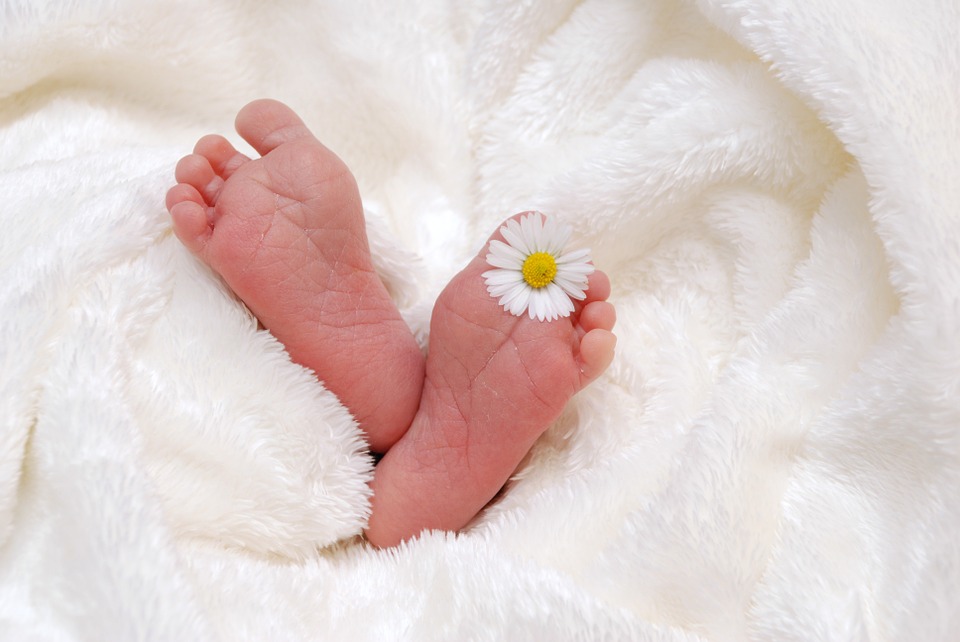
Pregnancy:
Pregnancy is perceived very positively in India. Pregnancy is a period of great caution as well as a great celebration. Married women are extremely happy to share their pregnancy news with friends and family but most of the females wait until the end of the first trimester to announce their pregnancy. The key reason to wait until this time is just to avoid the risk of miscarriages as most of the pregnancy loss happens within first trimester. ‘Godh bharai’ is a traditional Indian baby shower celebrated during pregnancy to welcome the unborn baby to the family and bless the mother-to-be with abundant joys of motherhood. Baby showers in India are mostly celebrated in the third trimester either in the seventh or the ninth month of pregnancy. ‘Godh bharai’ is performed to bless the unborn baby and shower the pregnant mum-to-be with blessings and gifts. Traditionally, ‘Godh bharai’ is a 'women-only' gathering. The elderly females in the family adorned the mum-to-be with jewellery, making her wear bangles, filling her lap with gifts, fruits and sweets and laying out a feast before her. Fruit basket, Jewellery, pretty sarees, and cash envelopes are traditional gifts for baby shower in India for an expecting mother. According to the Indian tradition, getting gifts for the unborn baby is usually not advised, however these days many people also gift diaper bags, toys, teethers, rattles, beddings, décor gifts for the baby's room, baby and maternity products etc to bless the mother and the child-to-be.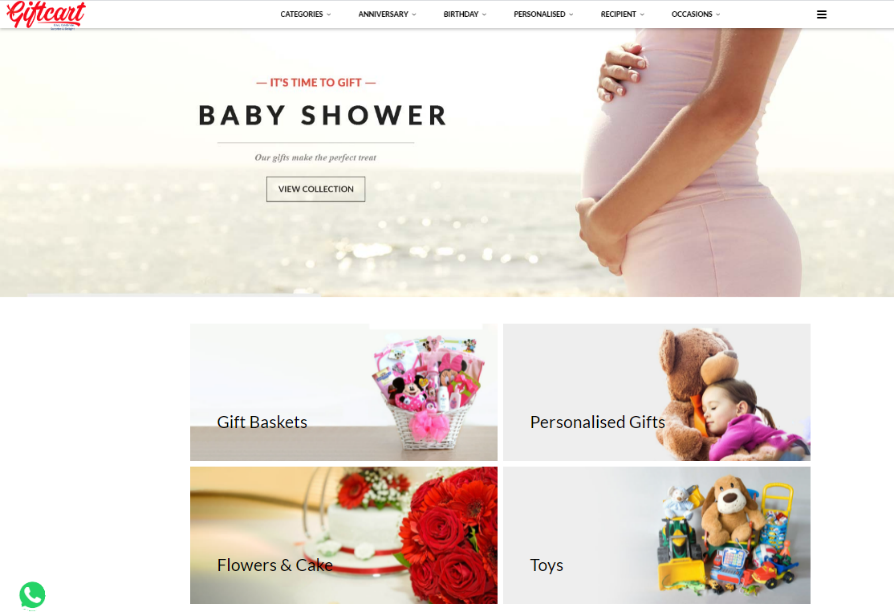
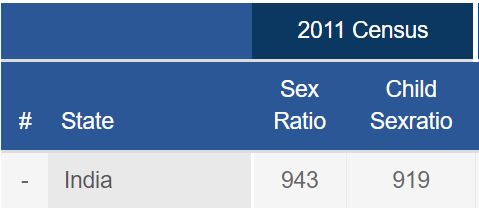
The number of females per 1000 of males
Source: Census 2011 https://www.census2011.co.in/sexratio.php
Source: Census 2011 https://www.census2011.co.in/sexratio.php
Childbirth:
In an Indian household, the arrival of a new baby is an occasion for much joy and celebration. The customs and traditions start before the baby is born and continue for up to a year after birth.The confinement period for the Indian woman after she gives birth is 40 days. She spends this period at her parents’ house, especially if it is her first child. This is to ensure that she has the best care and gets enough rest and feel more at ease with her own mother. Confinement period is practiced to protect mother and infant from exposure to disease and from evil spirits as both mother and child are considered to be in a vulnerable state after birth.
It is believed new-borns are highly susceptible to evil eye. There are some precautions practiced to prevent the consequences of evil eye like applying kohl on the infant’s forehead – (Hindus only).
Baby care:
Though it is tempting to think and purchase lot of stuffs for the baby even before they born. However, in India most of the family prefers not to shop before the baby's birth. Many people here believe that shopping for baby before giving birth will bring bad luck. Those that believe in the 'evil eye' are particularly against it because they feel that the sight of all those lovely baby things will bring negative attention to the mother and baby. Also, making a new-born baby wear hand-me-down clothes is a popular tradition believed to bring luck to the newborn, hence many mothers prefer to use hand-me-down clothes for the initial few days. Infants are usually massaged with oils on a daily basis. It is believed that the oil massage helps in good sleep and also makes the bone stronger. In India, mothers mostly use traditional oil like – Ayurvedic oil (Dabur Lal Oil), coconut oil, olive oil etc. Some prefers to use Ghee (Clarified butter) in winter to give massage to the baby, especially in norther part of India. Johnson’s Baby Massage Oil / Himalaya Baby Massage Oil / Chicco Baby Massage Oil / Mamaearth Soothing Baby Massage Oil are also used by many to massage the kids.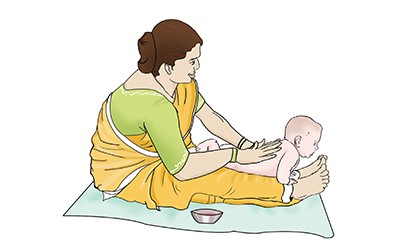
Source: Baby care information website in India http://motherandbabyindia.com/baby-massage-myth-or-blessing/
Indian mothers don’t like to use too many products on their baby. However, usage of powder, moisturizing lotion/ cream, bathing soap, shampoo, nappy cream and diapers are quite common. Considering the tender and delicate skin of the baby, many mothers prefer to use cloth nappy in the initial few months to avoid diaper rash. Baby wipes / wet cottons are commonly used to clean the area before changing the diaper. Usage of baby powder is also very common after every change to keep the area dry and clean. Many mothers feel that it not only leaves a good smell but also prevents the diaper rash. 

Baby care products in the household
Source:Intage Consumer Life Panorama
Source:Intage Consumer Life Panorama
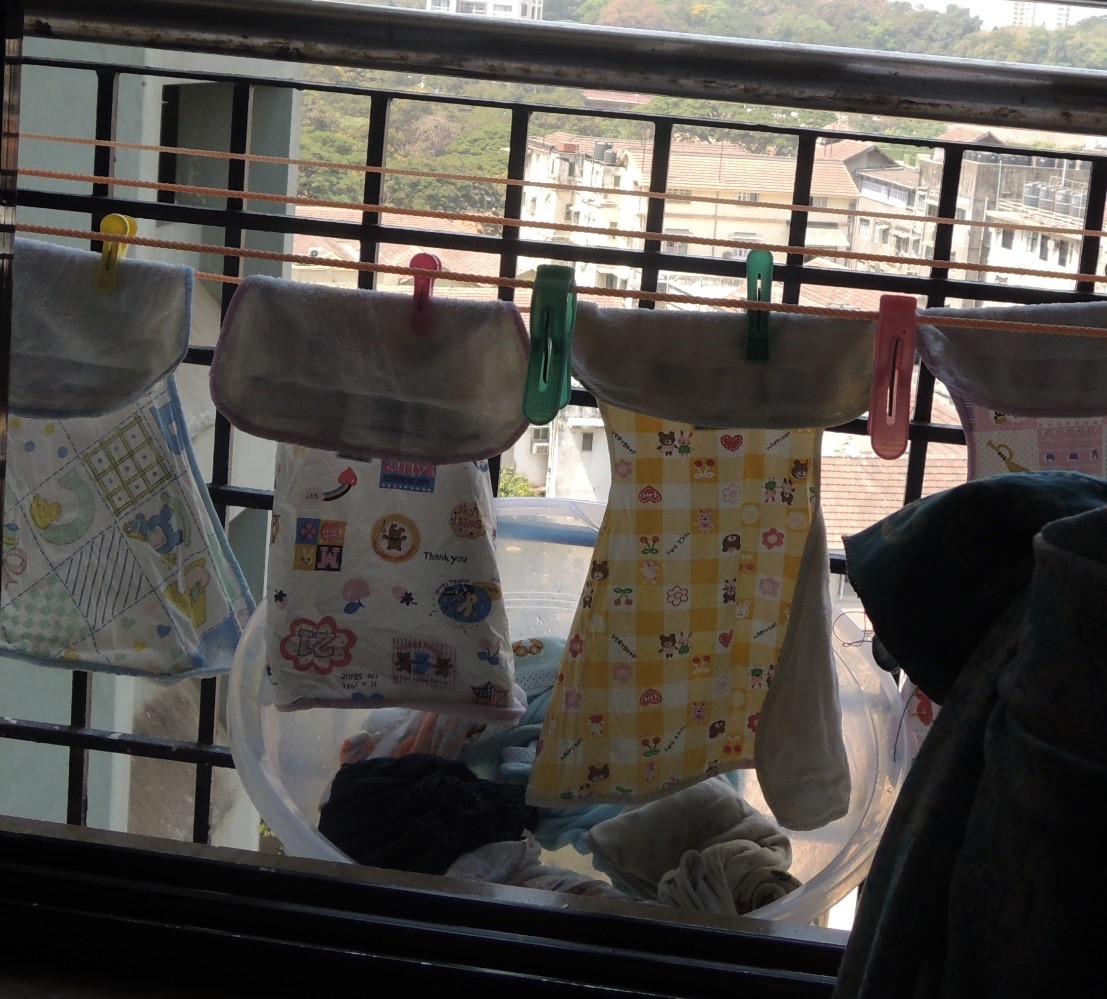
Cloth diapers (Source: Photo by Author)
Overall, what I feel is traditional and natural treatment, religious aspect is very important when it comes to baby care in India. Most of the first-time mothers prefers to follow all the rituals and traditions followed in the family.
-
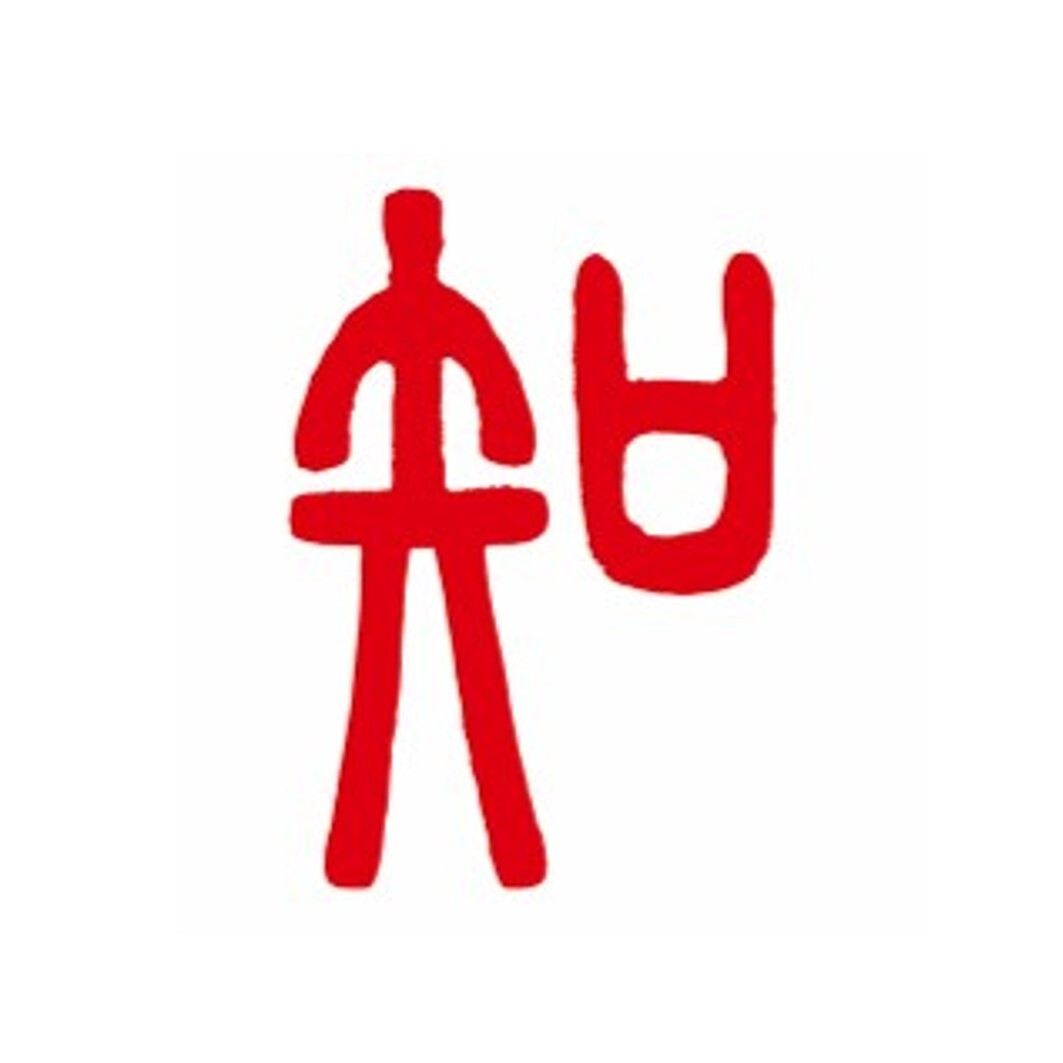
Author profile
Moumita Saha
Indian qualitative researcher, living in New Delhi for more than 10 years. She loves to cook new dishes for her family and likes to spend quality with her daughter who is 5 years old.
-

Editor profile
Risa Takahama
Is in charge of editing of Global Market Surfer.
 Global Market Surfer
Global Market Surfer CLP
CLP